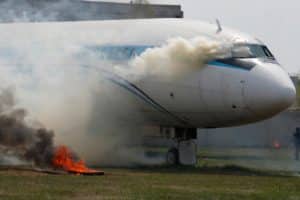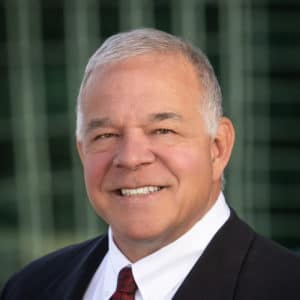Who Is Responsible for My Aviation Accident?
Accidents involving aircraft are often complex legal issues because determining liability could get complicated. When an aviation accident occurs, the Federal Aviation Administration (FAA) and the National Transportation Safety Board (NTSB) conduct investigations to establish the cause and liability.
If you were involved in an aviation accident, an aviation accident attorney can launch an independent investigation and gather solid evidence proving negligence. Then, you can file a claim against the liable party to recover compensation for your losses.
Determining the Cause of the Aviation Accident
When an aviation accident occurs, investigators must identify the cause to determine liability.
 Common causes include:
Common causes include:
- Defective equipment
- Pilot error
- Air traffic controller errors
- Insufficient fuel
- Poor weather conditions
Defective Equipment
Investigators must determine if there was faulty equipment on the airplane to identify who was responsible for the aviation accident. Common reasons include defective design, defective manufacturing, and poor maintenance.
When manufacturers create products, especially products that airplanes rely on to land or stay safely in the air, they must perform inspections and quality control checks before shipping them. If the manufacturer of landing gear cut corners and sold faulty parts, the company that sold the parts could face liability.
Pilot Error
When pilot error causes an aviation accident, several people or entities could face liability. Investigators can determine liability based on why the pilot made the error.
A pilot error could occur because:
- The pilot didn’t have adequate training to fly.
- The pilot didn’t ensure weather conditions were safe to fly.
- The pilot ignored directions from air traffic controllers or didn’t abide by their commands.
- The pilot flew at an unsafe altitude.
- The pilot flew the plane without getting adequate sleep and was fatigued.
- The pilot didn’t take off or land properly.
In many cases, the pilot themselves could hold blame if their error caused the accident. However, if the accident happened because the pilot didn’t have proper training, the company that hired them and allowed them to fly may bear financial responsibility.
Air Traffic Controller Error
Air traffic controllers play a vital role in safe plane travel. They control the flight path the pilot takes, communicate with pilots, respond if there are emergencies while a flight is in the air, and prevent collisions among aircraft. In addition, air traffic controllers can monitor all aircraft in the sky to ensure they have a safe flight path.
If the air traffic controller makes an error, it could cause fatal accidents.
Errors air traffic controllers can make include:
- Fatigue: Air traffic controllers must often work long shifts. Because of this, they can work while tired. Serious consequences could occur if an air traffic controller works while fatigued. When they are tired, they could miss pilot calls, forget routine tasks, or fall behind on planning.
- Communication errors: When air traffic controllers communicate with pilots, they must provide clear instructions. If there is a miscommunication between the air traffic controller and the pilot, accidents could occur.
- Staffing shortages: Air traffic controllers must undergo a rigorous training before beginning work. Sometimes, this intense training may prompt trainees to drop out, which ultimately can lead to staffing shortages. When there are staffing shortages, air traffic controllers could have to work long hours, causing fatigue. Another issue is that the air traffic controllers could begin work before they receive proper training.
- Improper management: One of the most important duties of air traffic controllers is to manage the air traffic and keep pilots informed of what’s going on. They alert them if there is dangerous weather, airplanes nearby, or when it’s safe to land on the runway. An accident could occur if they mismanage these factors.
If an aviation accident occurred because of human error caused by an air traffic controller, they may bear responsibility for the crash.
Insufficient Fuel
Having an adequate amount of fuel in the aircraft is crucial for the engines to run. If the aircraft runs out of fuel, the engines will stop working. Typically, airplanes have enough fuel to take them to the destination they are going with emergency fuel onboard.
On top of ensuring there is enough fuel, the aircraft must receive the correct type of aircraft fuel. If the incorrect fuel gets loaded into the fuel tank, the aircraft could crash. In general, there are two types of fuel for airplanes.
They include:
- Jet fuel: A refined kerosene-based, clear liquid that maintenance crews primarily use to power turbine engines. There are several types of jet fuel.
- AVGAS: Also known as “aviation gasoline,” AVGAS fuels traditional propeller aircraft and piston-engine airplanes.
The person fueling the plane must load the correct fuel and ensure that there is enough. Mechanics must also inspect to ensure there aren’t any defects in the fuel tank that could cause a leak.
Flying in Poor Weather
Bad weather can cause aviation accidents. For example, if there are violent up-and-down drafts, it can cause the structure of the aircraft to fail. Also, if the ice gets on the wings during the flight, the ice can interrupt the airflow pattern on the wings. When this happens, the plane could fail to lift correctly, ultimately leading to a crash.
While no one can control the weather, there still are potentially negligent parties when bad weather conditions cause a plane accident. For example, air traffic controllers must manage flights and ensure they don’t fly into dangerous weather. If they see the weather on the radar, they must inform the pilot and provide a different route to take.
If the pilot knows about the poor weather and continues to fly into it, this negligence could lead to an accident. Therefore, it is essential for air traffic controllers and pilots to keep an eye on weather radar to ensure an accident doesn’t happen because of bad weather.
Potential At-Fault Parties After an Aviation Accident
After an aviation accident, you must establish who holds fault. How the accident happened is a big factor in determining liability. Some potentially responsible parties could include the owner of the aircraft, the manufacturer, the pilot, the air traffic controller, or the maintenance crew.
Aircraft Owners
If the negligent conduct of the aircraft owner caused the accident, they could face liability.
Examples of situations where liability falls on the owner of the airplane include:
- The plane failed because of maintenance issues. If the owner didn’t properly maintain the airplane, and that led to an accident, they could face liability.
- The owner allows a pilot without proper training to fly the plane. If they knowingly allow someone who isn’t competent or doesn’t have the proper licensure to fly the airplane, they could face liability for the accident.
Aircraft owners usually face liability even if they allow a licensed pilot to fly the plane if there is an accident. Due to the principle of vicarious liability, employers take financial responsibility for their employee’s negligence. Typically, an aviation attorney can help those involved in the accident determine if the aircraft’s owner has responsibility for why the accident occurred.
Airplane Parts Manufacturer
The manufacturer of airplane parts owes a duty of care to prevent injury from providing faulty or defective products. They could face liability if the aviation accident occurred entirely because of a malfunctioning part, like brakes, engine components, or propellors.
Examples of defects include:
- Design defect: If the airplane part had a faulty design from the start, the company who designed the part could face liability for the accident.
- Manufacturing defect: If the defect occurred during the manufacturing process, the company that manufactured the product could face liability. Manufacturing defects can occur when companies cut corners to save time and money.
Any manufacturing defects show the manufacturer acted negligently. When an airplane crash happens because of a defective part, an aviation attorney can help the injured parties build a case against the liable party based on negligence.
The Pilot
Pilots have a duty to follow safety procedures before and during flights. If they don’t follow proper procedures, accidents can happen. Usually, the pilot’s employer takes responsibility for the accident. However, if they’re a private contractor or have their own business, they may hold liability for the victim’s damages.
Air Traffic Controller
The air traffic controller has a duty to create a safe flight path and to warn the pilot of potential bad weather conditions or hazards. They must also let the pilot know when they can safely take off and land. If they make an error, catastrophic accidents can occur. If their error causes an accident, they could hold the blame. However, like the pilot, their employee would bear financial responsibility for their mistake.
Maintenance Crew
If the aircraft doesn’t undergo regular maintenance, issues could arise while the plane is in the air, which could cause an accident. Maintenance crews must follow proper procedures to ensure the parts of the plane function correctly and that the plane has enough fuel to reach the next destination.
When the maintenance crew has to repair an airplane, they must follow detailed and specific instructions to ensure the airplane part gets repaired correctly. After making the repair, they must ensure the part works. If they fail to follow procedures and an accident happens, the maintenance supervisor or company could face liability.
An Aviation Attorney Can Investigate to Determine Who Is Responsible
While the FAA and NTSB will investigate any aircraft accidents, having an aviation attorney conduct an independent investigation is helpful. Aviation attorneys have the skills and knowledge needed to gather appropriate evidence and build a case against the liable party. Once they identify the liable person or entity, they can file a claim on behalf of their client to collect compensation for their damages.
To recover compensation after an aviation accident, an aviation attorney must prove the injured party suffered damages.
Types of compensation victims could recover include:
- The costs of their current and future medical care
- The income they lost if they had to miss work
- Reduced earning capacity if they cannot go back to work for the time being
- Pain and suffering if they experienced intense physical pain because of their injuries
- Emotional distress if they experienced intense and negative psychological issues because of the accident
- Wrongful death damages if someone lost their life to the crash
By having a solid case against the liable party, people who sustained injuries in an aviation accident or surviving family members have a better chance of recovering the compensation they need to avoid financial ruin.
Start Working With an Aviation Attorney Today

Robert W. Boatman, Aviation Attorney in Phoenix, AZ
Find an attorney who can determine who caused your aviation accident. They can investigate the accident and provide legal representation on your behalf. You can rest assured that they can take care of legal matters, so your only worry is recovering from your injuries. Check if they have handled many aviation accident cases and know the steps to take to conduct a successful investigation.
Contact a law firm to speak with a team representative at no cost. Many offer free consultations to potential clients so you can learn about your legal options and determine if they are the right fit to take on your case. During the consultation, you can get your questions answered and learn how the legal team can help with your case.
When you choose one to represent you, you can expect them to advocate for you to receive the compensation you deserve.

